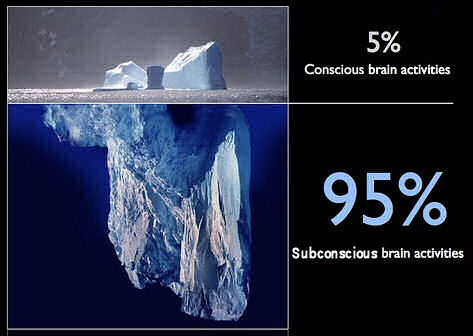A lot of abrahamics differ on the source (god, mind, or body). We all seem to believe we need right actions and motivations. Not all agree on the same god, what a mind is, and whether the body-say humanitarian beliefs-are the source of one truth, many, or no truth.
We agree on the virtues just not the source of those virtues
We agree on the virtues and that is very important. We agree to disagree about the existence of God. I think we are both comfortable with that.
I was trying to find the definition of mind/consciousness in Buddhism. I know it but I'll try to find a concrete definition from the suttas since it's explained in analogies instead.
Maybe you can put it better since this is your field of study
The consciousnesses (CN) is where we have our physical and psychological awareness
Our subconscious controls our automatic reactions (our actions)that our consciousness
Our unconscious (which I think its being debated if we have it) controls our automatic actions the body does on its own.
The iceberg analogy is a useful one.
The Dharma describes it as
Salayatana-vibhanga Sutta: An Analysis of the Six Sense-media
Consciousness: It involves physical and psychological awareness.
The Buddha provides a useful framework for considering our experience, and the state of mind that is conducive to practicing the dharma.
Subconscious (SC): Where we have our karma (for lack of better description)
You mean automatic actives that we are barely or completely unaware of.
The unconscious mind (UC): Is where rebirth happens.
By rebirth, do you mean escaping the cycle of samsara? Why does this have to be the unconscious mind. I would have thought the entire mind would be reborn ie CN, SC, and UN.
I describe it like PTSD.
You have the CN taking up the traumatic events say seeing a child die at war
You have the SC. The body reacts to things today that it did during the war.
Then you have the UC. The reactions in the SC is imprinted on the UC. It is also where behavior psychologist try to pick at the source that influences the SC and creates delusions of awareness for the CN to react from a non-existing war.
The analogy of PTSD is useful in considering how the SC and UC can profoundly experience our reactions and experiences. Certainly it can lead to cognitive distortions and cognitive dissonance.
In the practice of The Dharma, it would be:
Someone yells at us and our CN picks that up.
We yell back because of our SC reactions
Our action imprints what we do on our UC
Fair enough...behavioural psychology I suppose.
When we are reborn, it is because our UC has so much things imprinted on it that without constant purification (as in Tibetan Buddhism, for example) and meditation, in all schools, we will still be reborn having the same source (war), same reaction (attacking someone), and same immediate awareness (shock of being threatened to danger).
The mind is our unconscious. Our brain refers to our conscious and subconscious.
I see that what you are saying. I believe it is similar to the experience of being born again in Christianity.
John 3:1-7
The heart is just the emotions and sensations we get to our conscious. The love and kindness is from our SC. To a theist, the UC would be the holy spirit, soul, spirit, or so have you. Reuniting your awareness to god is how you'd define unity.
Buddha in His discourse mention happiness, unhappiness, and equanimity. Equanimity is the idea state where we are much less affected by emotions positive or negative, or six-sense media positive or negative. Through right action, speech, thought and meditation we achieve a state where we experience greater levels of loving kindness and genuine happiness. With this gift comes the responsibility to give in a greater measure.
In Buddhism, there is no god, soul, spirit, or what you would call heart. The UC isn't any of these things. It's purely defined by our actions that repeat themselves through rebirth. In nibanna, the actions are all pure. When all of our actions are pure, we actually die. The body and brain no longer needs to function.
I believe it would be more correct to say in my Buddhist practice there is no god, soul, or spirit. Not everyone who practices Buddhism believes and experiences what you do, and some clearly are theists and believe in a soul and after life.
Who the Buddha really was and what He really taught in regards to God, soul, and spirit is an unresolved difference of opinion between us. I prefer to consider it as a mystery for both of us to enjoy rather than a disagreement.

It doesn't go to god or anything like that. We actually die.
That is why Abrahamic religions (linear life-to death-heaven) is different than eastern traditions (Buddhism, life-death-life-final death)
Rebirth is extremely important.
I agree that rebirth is extremely important and to a certain extent, that is our mutual goal, to be born again. In that state we perceive the Buddha with our own eyes and ears and not through the eyes and ears of others:
In the practice of the way to Enlightenment, people see the Buddha with their own eyes and believe in Buddha with their own minds. The eyes that see Buddha and the mind that believes in Buddha are the same eyes and the same mind that, until that day, had wandered about in the world of birth and death.
http://www.e4thai.com/e4e/images/pdf/theteachingofbuddha.pdf
Page 66
Hope that helps with understanding the mind. I wish I had a lot of Dharma sources but a lot of info also comes from tradition and schools. As you said, many things aren't written down.
That has been a useful starting point for our discussions. Thank you.



